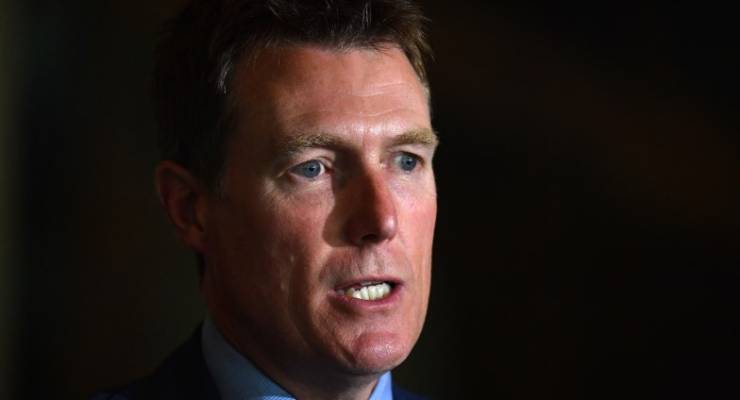
The failure of the Morrison government to progress its own inadequate proposal for a national integrity body after 15 months of inaction was highlighted yesterday when Attorney-General Christian Porter was humiliated by his own bureaucrats over the powers of the body.
In a rare case of officials being unable to avoid admitting their minister had stuffed up, Attorney-General’s Department staff contradicted claims by Porter that state integrity bodies couldn’t have investigated the equivalent of the sports rorts corruption scandal.
Speaking on the ABC yesterday morning, Porter defended the fact that the government’s proposed integrity body would have been unable to investigate Bridget McKenzie’s rorting of the community sport infrastructure grants program, saying “all corruption and crime commissions have to investigate criminal offences, that’s what they do.”
Fran Kelly’s suggestion that integrity commissions could investigate non-criminal conduct was dismissed by Porter as “just not correct”. “Integrity commissions or corruption commission or whatever that they’re called, investigate things which are written into statute as offences … Neither the police nor integrity commission investigate things that aren’t offences … That’s just how it works.”
But Kelly was correct, because that’s not how it works. State anti-corruption bodies like New South Wales’ ICAC can investigate corrupt conduct that is not a criminal offence. Porter’s own bureaucrats confirmed exactly this later in the day at estimates.
Deputy Secretary Sarah Chidgey told the Legal and Constitutional Affairs estimates hearing that state integrity bodies “can investigate matters that are not criminal too.”
When pressed on Porter’s comments that they can only investigate criminal offences, Chidgey replied “there are state and territory integrity commissions that can investigate things that are not offences”.
Chidgey is correct, too: most state anti-corruption bodies can investigate corrupt conduct that is not a criminal offence and all of them can do so in relation to police. The body proposed by Morrison and Porter would be banned from investigating any corrupt conduct that is not currently a criminal offence (and would not be able to investigate ministers or their staff based on complaints from the public).
What’s remarkable is that not merely did Porter point up the gross inadequacy of the government’s own model — which was, in effect, dictated by News Corp, in high dudgeon about the effectiveness of the NSW ICAC in uncovering donation scandals in the NSW Liberal Party — but that Porter, allegedly the senior law officer in the land, made such a basic mistake about a major issue. It’s hard to imagine his bungle-prone predecessor George Brandis, who at least took pride in his own Latinism-strewn understanding of the law, making such a howler.
The government has on multiple occasions blocked integrity commission bills moved by the Greens or the crossbenchers, and promised a bill by the end of 2019. That promise was rapidly broken, with no bill currently in sight. Given Porter’s failure to grasp the basics, it may be a long time coming.








Any Commission that lacks the power to pursue politicians over both criminal & non-criminal corrupt activity is not a Commission worth having.
The two real issues untouched here and elsewhere are the damage to the public purse and to the actual users of the AAT. These positions seem to be paid at least $200k a year plus allowances and no doubt a bevy of support staff and offices etc. An incompetent member will be slow and make bad decisions more likely to be appealed because of procedural ineptitude.
The applicants are delayed and denied properly considered justice which is the most important bit. The AAT was originally formed to speed justice to the public and avoid lengthy and expensive regular court proceedings. It has now become in part a form of very expensive childcare for adult mates. As usual the taxpayers gets slugged and Joanne Public’s problems get further stuffed around.
Are you sure it was genuine ignorance Bernard, and not the more usual willful pig-ignorance and utter contempt for due process that we have come to expect from this outfit?
Was this really ministerial ignorance of the matter he failed to progress “by the end of 2019” as promised, or is it a case of conflict between truth and the concealment of the illegal and immoral acts of a dishonest government.
It is noted that this same attorney general has yet to present to the parliament a bill to authorise Morrison’s proposed to selectively licence religious vilification and victimisation.
Christian “Privacy Act, what Privacy Act?” Porter is notorious for getting the law wrong. Centrelink people are still furious with him for doxxing that single mum over robo-debt.
The way Christian’s going, he’ll end up PM of this fair country.